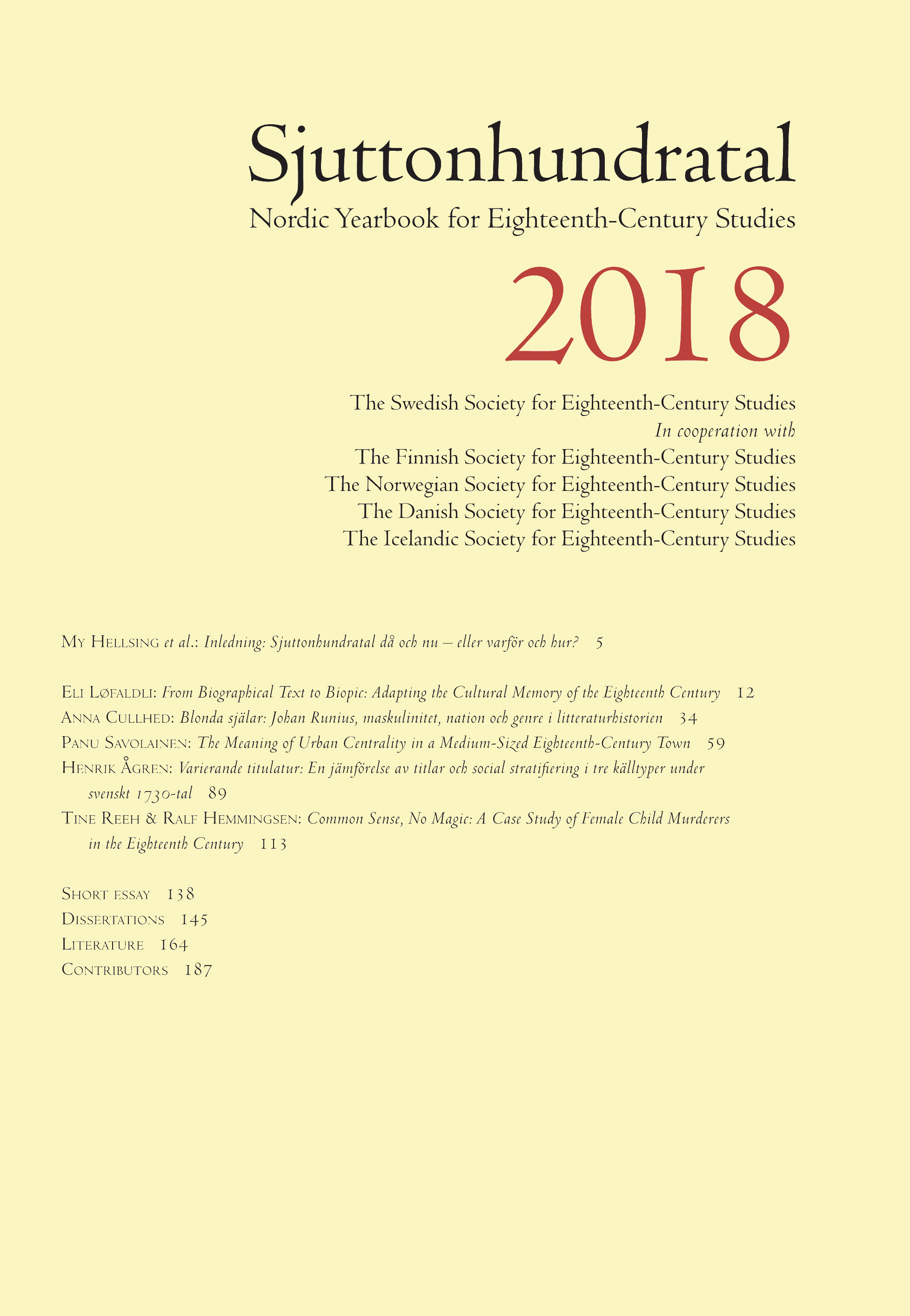Blonda själar: Johan Runius, maskulinitet, nation och genre i litteraturhistorien
DOI:
https://doi.org/10.7557/4.4482Abstract
‘Blond Souls’: Johan Runius, Masculinity, Nation and Genre in Literary History
This paper shows that the historiographical accounts of Johan Runius (1679–1713) remain remarkably stable, from the early stages of national literary history of the nineteenth century to the late twentieth century, despite the radical theoretical shifts taking place during the period. The poet Runius is generally described as an occasional poet, a rhyme virtuoso, a good-tempered man, and as a precursor of the celebrated Carl Michael Bellman, considered a uniquely Swedish genius. These features are connected to nineteenth- and early twentieth-century ideals of masculinity and the nation. Whereas Runius in the early nineteenth century was described as childish, during the later nineteenth century his good temper was interpreted as an ideal, steadfast masculinity in the face of the hardships of early eighteenth-century Sweden. Further, the historiographical tradition set greater store by poems defined as lyrical. The hailed poems were, in fact, occasional poems, but they were recontextualised by the literary historians as proof of Runius’ personal feelings. The article ends with new suggestions for reading Runius beyond nation as the ordering principle of literary history.Metrics
PDF views
369









